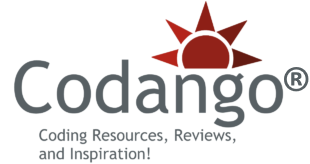When it comes to web scraping, the choice between using a Virtual Private Network (VPN) and a proxy server can significantly impact the effectiveness and efficiency of your data collection efforts. Both tools serve to mask your IP address and provide anonymity, but they do so in different ways and come with their own advantages and disadvantages. This article will explore the differences between VPNs and proxies, helping you determine which is more suitable for your web scraping needs.
Understanding VPNs and Proxies
What is a VPN?
A VPN creates a secure connection between your device and a remote server operated by the VPN provider. This connection encrypts your internet traffic, making it difficult for third parties to intercept or monitor your online activities. When you use a VPN, your real IP address is hidden, and websites see the IP address of the VPN server instead.
What is a Proxy?
A proxy server acts as an intermediary between your device and the internet. When you send a request to access a website, the proxy server forwards that request on your behalf, masking your real IP address. Unlike VPNs, most proxies do not encrypt your internet traffic, which means they provide less security compared to VPNs.
Key Differences
- Security and Privacy
VPN: Offers robust encryption, ensuring that your data remains private and secure from potential threats. This makes VPNs ideal for sensitive data transmission.
Proxy: Generally lacks encryption, making it less secure. While it can hide your IP address, it does not provide the same level of privacy as a VPN. - Speed and Performance
VPN: The encryption process can slow down your internet speed, especially if the VPN server is far from your location or if the server is overloaded with users.
Proxy: Typically faster than VPNs because they do not encrypt your traffic. This can be beneficial for web scraping where speed is essential. - Use Cases
VPN: Best suited for users who need secure connections for sensitive tasks, such as accessing restricted content or conducting financial transactions. It can also be useful for browsing securely on public Wi-Fi networks.
Proxy: More suited for web scraping tasks where the primary goal is to bypass geographical restrictions or avoid IP bans. Proxies allow for faster data collection without the overhead of encryption. - Cost
VPN: Often comes with a subscription fee, which can vary depending on the provider and the level of service offered.
Proxy: Can be cheaper or even free, but quality and reliability may vary significantly. Premium proxies typically offer better performance and support.
Which is Better for Web Scraping?
The choice between a VPN and a proxy for web scraping largely depends on your specific needs:
Use a Proxy if:
You are primarily focused on scraping data quickly and efficiently.
You need to manage multiple IP addresses to avoid detection and bans.
You are scraping non-sensitive data and do not require encryption.
Use a VPN if:
You need a secure connection for sensitive data.
Your scraping activities involve accessing restricted content that requires a secure connection.
You want to ensure that your online activities remain private from potential monitoring.
Conclusion
Both VPNs and proxies have their unique benefits and drawbacks when it comes to web scraping. If your priority is speed and managing multiple IP addresses, a proxy may be the better choice. However, if security and privacy are paramount, especially when handling sensitive data, a VPN is the way to go. Ultimately, understanding your specific requirements will help you make an informed decision.
For more information on proxy services, consider checking out IP2World.
